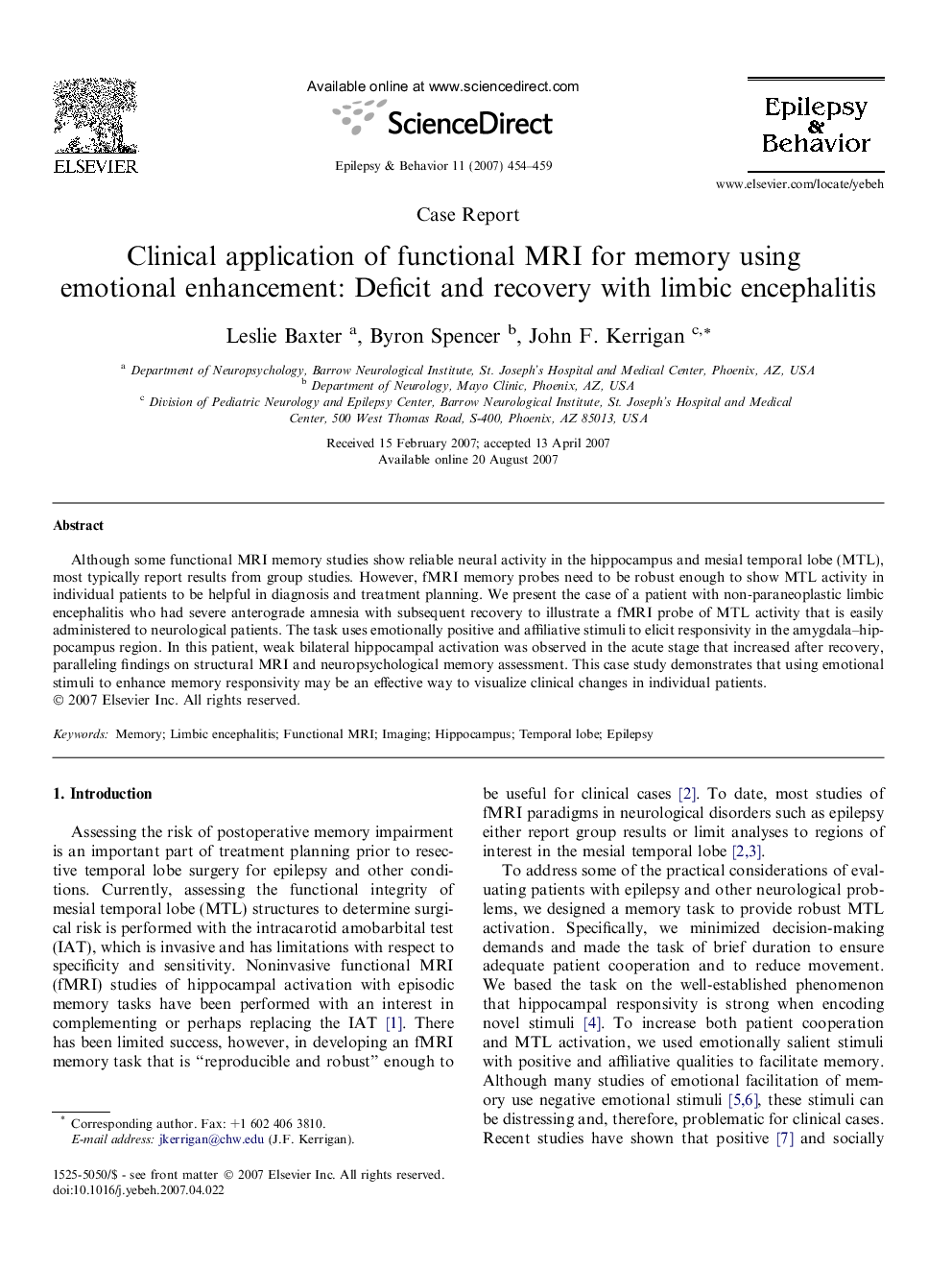| Article ID | Journal | Published Year | Pages | File Type |
|---|---|---|---|---|
| 3050796 | Epilepsy & Behavior | 2007 | 6 Pages |
Although some functional MRI memory studies show reliable neural activity in the hippocampus and mesial temporal lobe (MTL), most typically report results from group studies. However, fMRI memory probes need to be robust enough to show MTL activity in individual patients to be helpful in diagnosis and treatment planning. We present the case of a patient with non-paraneoplastic limbic encephalitis who had severe anterograde amnesia with subsequent recovery to illustrate a fMRI probe of MTL activity that is easily administered to neurological patients. The task uses emotionally positive and affiliative stimuli to elicit responsivity in the amygdala–hippocampus region. In this patient, weak bilateral hippocampal activation was observed in the acute stage that increased after recovery, paralleling findings on structural MRI and neuropsychological memory assessment. This case study demonstrates that using emotional stimuli to enhance memory responsivity may be an effective way to visualize clinical changes in individual patients.
